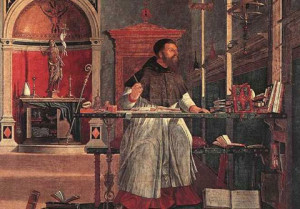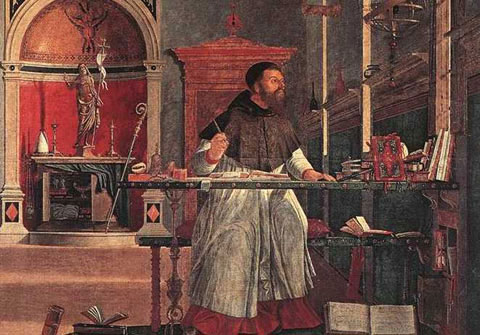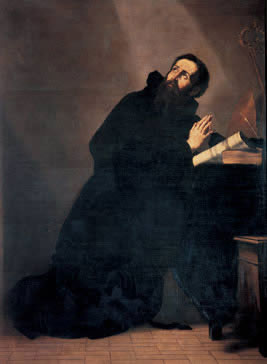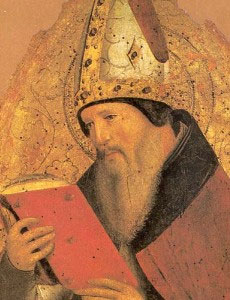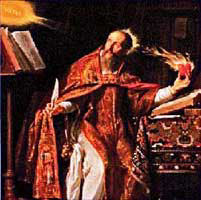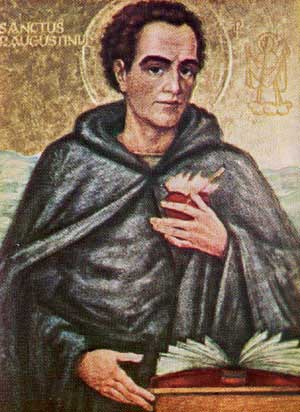A Novena Prayer to St. Augustine
Podcast: Play in new window | Download (Duration: 2:18 — 2.1MB) | Embed
Subscribe: Apple Podcasts | Spotify | Amazon Music | Android | Pandora | iHeartRadio | JioSaavn | Podchaser | Gaana | Podcast Index | Email | TuneIn | Deezer | Anghami | RSS | More
Day 9
St. Augustine has written:
“Late have I loved you, beauty so old and so new: late have I loved you. And see, you were within and I was in the external world and sought you there, and in my unlovely state I plunged into those lovely created things which you made. You were with me, and I was not with you. The lovely things kept me far from you, though if they did not have their existence in you, they had no existence at all. You called and cried out loud and shattered my deafness. You were radiant and resplendent, you put to flight my blindness. You were fragrant, and I drew in my breath and now pant after you. I tasted you, and I feel but hunger and thirst for you. You touched me, and I am set on fire to attain the peace which is yours.” (from the “Confessions“)
Heavenly Father,
we turn to you now with the intentions we hold in our hearts,
as pray as St. Augustine has taught:
Spirit of wisdom and understanding,
enlighten our minds to perceive the mysteries
of the universe in relation to eternity.Spirit of right judgment and courage,
guide us and make us firm in our baptismal decision
to follow Jesus’ way of love.Spirit of knowledge and reverence,
help us to see the lasting value of justice
and mercy in our everyday dealings with one another.May we respect life
as we work to solve problems of family and nation,
economy and ecology.Spirit of God,
spark our faith,
hope and love into new action each day.Fill our lives with wonder and awe
in your presence which penetrates all creation.
Intercede for us, , St. Augustine
That God may favorably hear our plea
And that He may grant us the grace
To accept His will in all things,
Through Jesus Christ, our Lord,
In the unity of the Holy Spirit,
One God forever and ever.
Amen.


